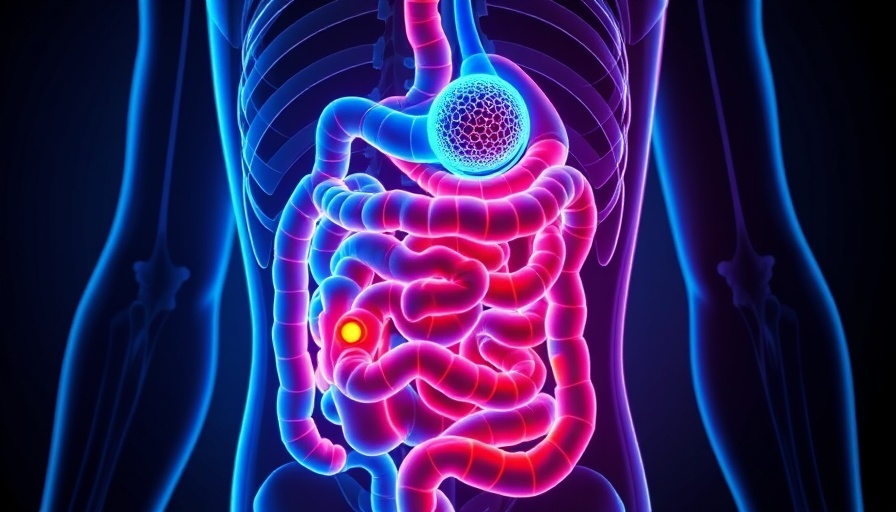
The Gut Bacteria Connection to Colon Cancer
Recent studies have spotlighted the significant relationship between gut bacteria and colon cancer, revealing how changes in our gut microbiome might influence the risk of developing precancerous colon polyps. A pivotal study published in the journal Cell Host & Microbe reveals fascinating insights into how certain bacteria, particularly non-enterotoxigenic Bacteroides fragilis, are more prevalent in individuals with these polyps. This research, led by William DePaolo from the University of Washington, illuminates vital connections between gut health and cancer, urging a reconsideration of how we view dietary habits and preventive care.
Understanding Colon Cancer and Polyps
Colorectal cancer remains a pressing health threat, being the third leading cause of cancer deaths in the United States, especially among younger adults. Almost all colorectal cancers emerge from precancerous polyps, which underscores the importance of early detection and intervention. Given that the gut microbiome supports our overall health, it is pivotal to understand how it can also be a marker for potential issues. By examining the gut bacteria composition, health professionals may garner crucial insights that can lead to early detection of at-risk patients.
Decoding the Role of Bacteroides fragilis
DePaolo's investigation found alarming correlations; specifically, higher levels of Bacteroides fragilis were discovered in mucosal biopsies near polyps in patients aged 50 to 75. What’s particularly compelling is how the B. fragilis present in those with polyps displayed a uniquely inflammatory capacity compared to its healthier counterparts. This adaptation of bacteria indicates that even typically benign microbes can contribute to a harmful environment that may lead to cancer development, further suggesting metabolic and inflammatory factors are crucial in this process.
Microbial Indicators of Cancer Risk
The study hints at the potential for gut bacteria to serve as biomarkers for colon cancer risk. While only about 5% of colon polyps are estimated to become cancerous, they tend to develop in specific colon regions repeatedly, suggesting targeted screenings for these bacteria could reshape how we prevent and intervene in colon cancer cases. This idea aligns with other research indicating that bacteria like Escherichia, Shigella, and other strains contribute significantly to polyp development, highlighting a pattern that invites further exploration.
The Dietary Influence on Gut Health
What we eat plays a pivotal role in shaping our gut microbiome, influencing our overall cancer risk. Dietary choices can dramatically alter gut bacteria and consequently, cancer outcomes. For instance, a study from the University of Toronto suggests that low-carbohydrate diets may exacerbate the damaging effects of certain gut microbes. Particularly, a strain of E. coli associated with DNA damage can thrive on a low-carb diet, eliciting a greater risk for colon polyps and cancer. This relationship calls for reassessment of dietary habits concerning colon health, placing a premium on high-fiber foods to cultivate a cancer-preventive gut environment.
Combating Myths and Misconceptions
Many misconceptions surround the role of bacteria in our bodies, particularly the idea that all bacteria are harmful. In reality, the gut is home to trillions of microbes that serve essential functions in digestion, immunity, and even mood regulation. Understanding the duality of gut bacteria—how certain bacterial strains can aid health while others may increase cancer risk—empowers individuals to make informed choices about diet and lifestyle.
Empowering Action and Prevention
As the importance of gut bacteria in colon cancer risk becomes clearer, it is essential for individuals and families to recognize the power of preventive healthcare. Regular screenings, informed dietary choices rich in fiber, and understanding personal health histories are vital steps in reducing the risk of colorectal cancer. Engaging with healthcare providers to discuss gut health is also crucial. This proactive stance can ensure that risk factors are addressed before they potentially escalate into more severe health issues.
By fostering awareness and making informed lifestyle choices, parents and adults can play a critical role in preventing colon cancer. Empowerment lies in knowledge; understanding how gut health affects overall well-being can lead to improved quality of life and longevity.
 Add Row
Add Row  Add
Add 




 Add Row
Add Row  Add
Add 

Write A Comment